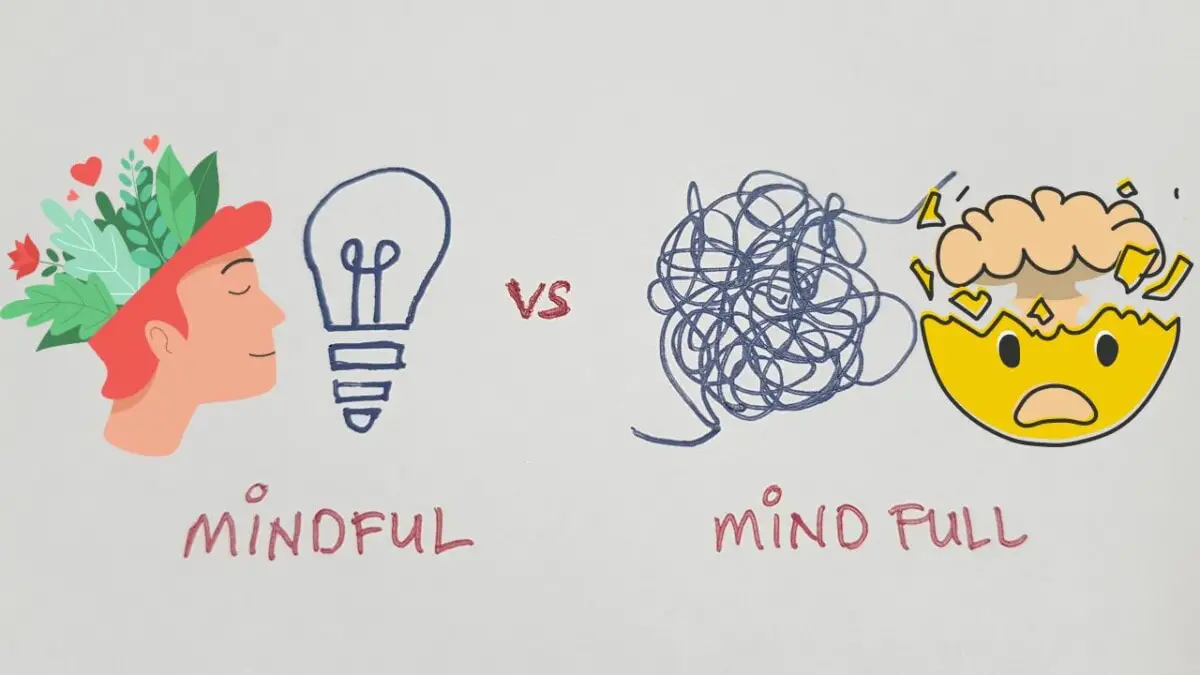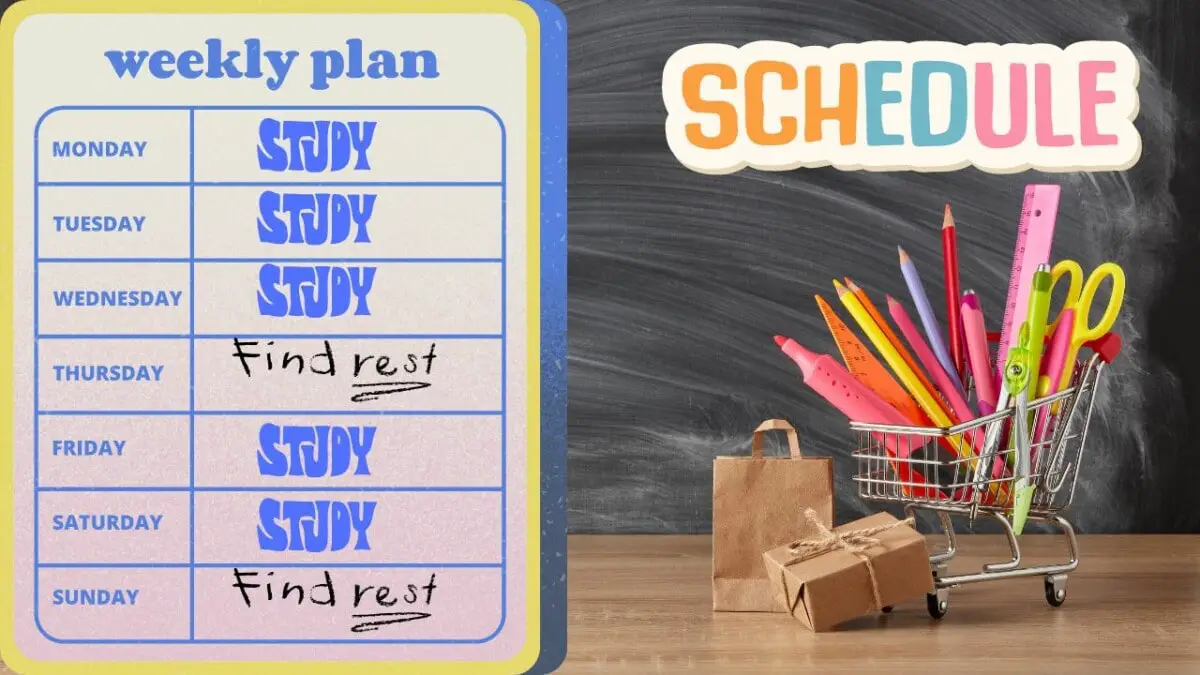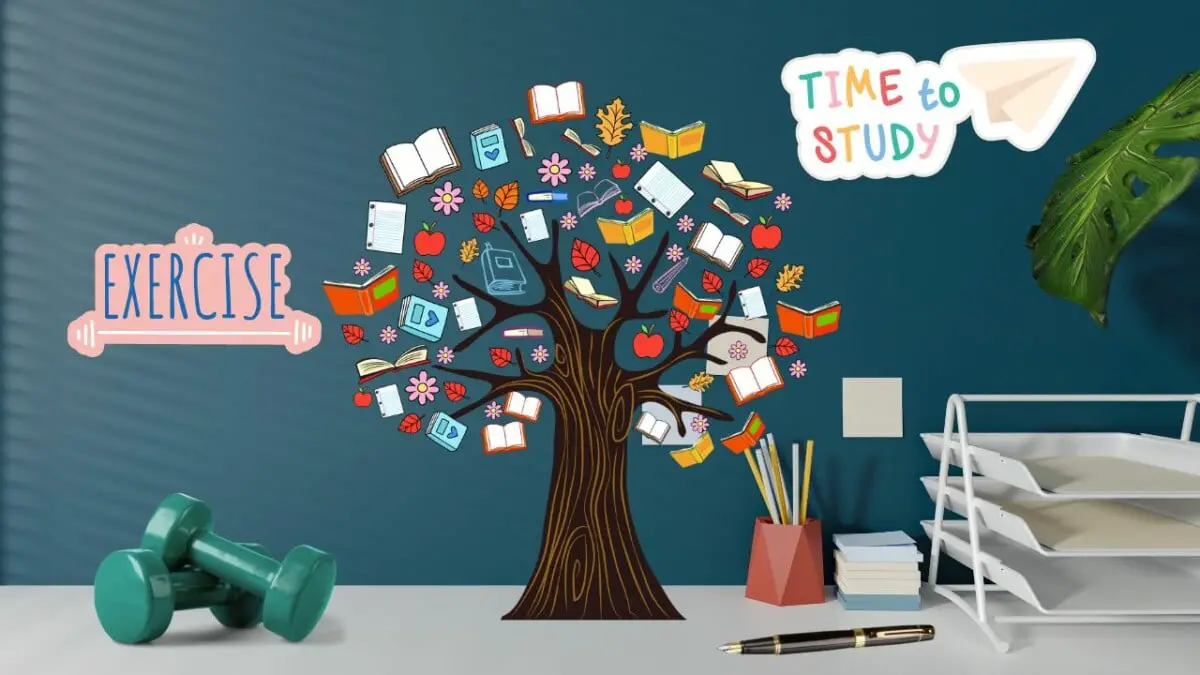In a world where the importance of hard work and dedication is often emphasized, too much studying may appear counterintuitive. Indeed, isn’t continuous effort the key to success rather than its excess? Yet upon further investigation into this matter, an examination reveals a nuanced perspective on how relentless study habits can affect both personal life quality as well as academic performance. In this exploration, we will navigate potential pitfalls and consequences of excessive studying, shedding light on its effects and offering insights into achieving a balanced, healthy approach to learning.
Similar to how overdoing anything can be detrimental, the same holds for studying too much. Excessive studying can hinder your ability to retain information, so it’s essential to maintain a balanced study session. Just like professional bodybuilders have rest days to allow their muscles to grow, the same principle applies to the brain. Taking breaks and allowing the brain to rest is crucial for growth and proper retention of information.
The Culture of Overachievement

Navigating the Pressure to Excel
Academic success’s high esteem in society often ensnares many individuals into an unyielding pursuit of excellence. The expectations to perform exceptionally well in exams, secure esteemed positions, and meet societal benchmarks can propel students. They push the boundaries of their capabilities. A deep-seated fear, not uncommonly originating from a competitive academic environment, compels them. It is this relentless drive that frequently outshines any innate desire for personal growth or enjoyment derived from learning itself.
Demystifying the Endless Productivity Myth
In the current era dominated by hustle culture, we persist in a common belief that success directly correlates to the immense time and effort invested. This perspective has elevated marathon study sessions. Some students flaunt their burnout as proof of dedication. It is not merely about quantity but rather quality when it comes to studying. You must acknowledge this crucial distinction, it is imperative to redefine success, transcending the limitations imposed by relentless work hours.
The Physiology of Learning

Unpacking Cognitive Fatigue and its Impact on Performance
Insights from studies shed light on the consequences of prolonged study sessions, evidence suggests that such endeavors can induce cognitive fatigue. Overtaxing the brain leads to faltering concentration and diminished retention capacity for information. This is an important aspect to consider when examining academic performance. Does a point exist where the pursuit of knowledge indeed becomes counterproductive?
Emphasizing the Importance of Rest
The conventional belief that continuous effort is indeed the sole driver of success, stands challenged by research from the American Psychological Association (APA) underscores. With a fervor worthy of note, rest’s indispensable role in learning. Adequate sleep and breaks during study sessions. Far from being mere indulgences, are essential processes for consolidating information while sustaining cognitive functions.
This perspective not only reshapes but also enriches, it highlights with great clarity the symbiotic relationship between periods of rest and optimal cognitive performance. It’s an integral part of any discourse around academic achievement.
Mental Health Implications

Unmasking Burnout and The Anxiety Paradox
A study mentioned by the Newport Institute reveals the ceaseless pursuit of academic excellence does indeed exact a toll on mental health. This research establishes elevated levels of perfectionism and overcommitment to academics are connected with burnout. Thus, demonstrating an unbalanced approach towards learning that unveils its darker side. Among students, persistent fears of falling short and an inability to unwind contribute directly, or indirectly too, to heightened levels of anxiety.
Advocating for a Balanced Lifestyle
A crucial antidote emerges achieving a harmonious equilibrium between academic pursuits and personal well-being. Encouragingly, research reveals that students who engage in extracurricular activities, cultivating diverse interests, experience less burnout. They also report heightened overall satisfaction. This underscores the importance of nurturing an all-encompassing life where scholastic goals intertwine with joyful, fulfilling ventures.
Unlocking Effective Study Strategies
Instead of succumbing to the relentless pressure of excessive amount of study hours, you should embrace a more fruitful approach and effective study strategies. For instance, the Pomodoro Technique is characterized by short bursts of focused work followed by brief breaks. This technique has proven its capacity not only for enhancing productivity but also for warding off burnout from over-studying.
Such strategies, which optimize learning and promote a healthier and more sustainable academic routine, are indispensable. They elevate productivity beyond mere functionality into the realm of excellence.

Embracing Realistic Goals
The pursuit of achievable goals is our pivotal defense against over-studying. Individuals, who set realistic, specific objectives, are more apt to feel accomplished without falling prey to overwhelming stress. This paradigm shift propels a mindful, measured approach toward academic pursuits. It amplifies the importance of learning quality over quantity, a significant revaluation indeed.
The Impact of Technology on Study Habits
Technology, in the ever-evolving landscape of education, pivots how students approach their studies. Online resources are a recent advent. Digital textbooks and educational apps specifically have offered unprecedented access to information. These technological tools not only enhance learning experiences but also present an inherent risk, they may contribute to over-studying.
Digital Distractions and Information Overload
Smartphone ubiquity and constant connectivity have ushered in a new era of challenges for studying routines. Students frequently succumb to the allure of social media, instant messaging, and other digital distractions. The incessant flow of information does not merely disrupt concentration. It also prolongs study hours as individuals grapple with distilling essential content from the vast online sea.
The sheer volume of available online information, at times, can overwhelm individuals with data abundance, a phenomenon known as information overload. This hinders effective learning in an attempt to remain current and cover every aspect of a subject, students might unwittingly over-study, thus undermining the quality of their educational experience.
Strategies for Navigating the Digital Era
Adopting strategies that promote mindful and purposeful engagement with digital resources is crucial to neutralizing technology’s potential negative impact on study habits. By implementing focused study apps, ones designed to minimize distractions, and by establishing designated times for checking emails and messages, we can create a conducive environment for effective learning; additionally, incorporating digital detox periods will further enhance this approach.
Moreover, harnessing technology for personalized and adaptive learning experiences optimizes study time. Platforms that customize content to the individual’s learning style and pace improve comprehension and retention, thus diminishing the necessity of spending excessive hours studying.

The Role of Mindfulness in Studying
The growing awareness of mental health issues in academic settings has fueled traction for including mindfulness practices in study routines. Rooted in meditation and self-awareness, mindfulness provides a holistic approach to learning that transcends the traditional focus on academic content.
Mindful Study Techniques
Cultivating an awareness of thoughts, feelings, and the surrounding environment is a key aspect of practicing mindfulness during study sessions. Deep breathing techniques, meditation methods, and mindful breaks, all can assist in maintaining present focus for students. When individuals incorporate mindfulness into their study routines, they foster a conducive mental space for effective learning.
Encouraging students to approach their academic pursuits with intention and clarity, mindful study techniques reduce the likelihood of succumbing to over-studying pressures. Such intentional focus on the present moment enhances not only concentration but also contributes significantly toward overall well-being.
Creating Mindful Study Environments
Fostering a mindful study environment proves essential beyond mere individual practices. Educational institutions can actively promote mindfulness. They may provide dedicated spaces for quiet study and incorporate elements of nature into campus design. This is an approach known as biophilic design and offers workshops or programs on mindfulness.

The Future of Learning – Adaptability and Lifelong Learning
Rapid transformations in the global landscape underscore a future of learning that prioritizes adaptability and necessitates lifelong education. Individuals, acknowledging the evolving nature of knowledge and skills, must adopt lifelong learning to remain pertinent, even thrive, in this dynamic world.
Adapting to Changing Educational Paradigms
The fixed curricula and structured timelines characterize the traditional education model that is evolving. The future of learning, embracing flexibility, permits individuals to customize their educational journeys in alignment with personal and professional goals. This adaptability diminishes cramming pressures, thereby mitigating risks associated with over-studying, a significant progression.
Cultivating a Growth Mindset
The concept of a growth mindset, as proposed by psychologist Carol Dweck, becomes particularly relevant in the context of lifelong learning. Embracing this concept necessitates perceiving challenges as growth opportunities and comprehending that abilities evolve with time. By developing a mindset valuing the learning process, individuals can relieve stress linked to perfectionism and excessive studying.

The Importance of Social Learning
Pursuing a well-rounded education underscores the importance of social learning. While individual study sessions remain crucial, it is fostering a collaborative environment that truly amplifies our overall educational experience.
Benefits of Group Study Sessions
Participating in group study sessions is a strategy that fosters an exchange of ideas and a diverse range of perspectives. It cultivates collective problem-solving. Leveraging each other’s strengths, clarifying doubts, and reinforcing understanding of complex concepts are opportunities that students can seize within these dynamic groups.
Moreover, besides stimulating intellectual discussions, the dynamics inherent to such collaboration offer emotional bolstering. It’s a crucial benefit in countering feelings of isolation often associated with solitary study marathons.
Strategies for Effective Social Learning
To harness the benefits of social learning without succumbing to the pitfalls of over-studying, it’s essential to establish clear goals for group study sessions. Setting specific objectives, dividing tasks, organizing study material, and maintaining a structured agenda can prevent sessions from becoming overwhelming and unproductive.
Additionally, embracing diverse study groups with individuals from different academic backgrounds can bring fresh perspectives to the table. This broadens the scope of learning and fosters a collaborative spirit essential for success in both academic and professional endeavors.
Moreover, peer teaching becomes an invaluable opportunity through group studies. Your understanding solidifies as you explain concepts to others. This dynamic and interactive learning approach often offers a refreshing break from the individual study sessions’ monotony.

The Role of Physical Activity in Cognitive Function
To reap the advantages of social learning while evading its potential pitfall which is excessive studying, we must set clear objectives for our group study sessions. By defining specific goals, dividing tasks, and adhering rigorously to a structured agenda. We can curtail the overwhelming nature and unproductivity that often characterizes these sessions.
Enhancing Cognitive Abilities Through Exercise
Embracing diverse study groups, including individuals from varying academic backgrounds. This action injects fresh perspectives into our discussions. Furthermore, it’s not just a case of broadening the learning scope. We foster an essential collaborative spirit for success in all arenas, academic and professional alike.
The incorporation of physical activity into daily routines emerges as a potent ally in the quest for a balanced approach to learning. Indeed, research consistently demonstrates that exercise positively impacts cognitive function, memory retention, and overall mental well-being.
Balancing Study and Exercise
Regular physical exercise increases cerebral blood flow, fosters new neuron growth, and enhances neural connectivity. Consequently, it augments cognitive functions such as concentration, attention, and problem-solving abilities. Even during study breaks, partaking in activities like brisk walking, jogging or yoga rejuvenates the mind, thus enhancing the overall learning experience more effectively.
Academic life demands a strategic investment in physical activity, try integrating short exercise routines into study breaks. This not only revitalizes your body but also bolsters subsequent focus during study sessions. It’s an essential component of combating over-studying’s adverse effects. A balance between mental and physical well-being must be struck to achieve this goal.
The Art of Reflection in Learning
Amid a whirlwind of information and study sessions, one often relegates reflection to an inferior position. Nevertheless, integrating reflective practices into our learning journey can substantially enhance both our understanding of the material as well as foster personal growth.
Benefits of Reflective Learning
Consciously thinking about and analyzing one’s experiences in reflection allows for a more profound comprehension of the studied material. It is an active process. Allocating time to reflect on what has been learned, the connections to existing knowledge, and strategies employed for understanding has a distinct advantage. This deliberate introspection enhances the learning procedure.
Furthermore, through such mindful self-examination, we identify areas that demand further clarification or additional focus. It becomes our guide towards intellectual growth and mastery, an indispensable tool in studies.
Incorporating Reflection into Study Habits
Consider integrating reflective practices into your study habits by maintaining a study journal or dedicating time for post-session contemplation. Engage in self-questioning about the lessons learned, challenges encountered, and most effective strategies employed. This conscious awareness reinforces learning and fosters an approach to education that is both mindful and purposeful at its core.
Conclusion
Concluding, we explore the existence of excessive studying. It’s a complex landscape shaped by societal expectations, technological advancements, mindfulness practices, and education’s evolving nature. As we navigate this intricate terrain, it becomes clear that not only understanding potential pitfalls from over-studying is crucial for our academic success and fulfillment but also adapting to changing dynamics in learning.
In the digital era, it is paramount to engage with technology mindfully to prevent information overload and digital distractions; indeed, this engagement should be characterized by a conscious awareness of our interactions. By incorporating mindfulness practices into our study routines, we foster a holistic approach to learning that emphasizes not only academic achievements but also mental well-being. Both are integral components of successful education.
Moreover, the future of learning places a premium on adaptability and lifelong education. Individuals receive encouragement to foster their growth mindset. They embrace the voyage of perpetual learning as an avenue for personal as well as professional development.
Essentially, the takeaway surpasses the mere dichotomy between intense study and strategic learning. It demands a comprehensive, adaptable methodology in which individuals traverse academic complexities with purposefulness, mindfulness, and an enduring dedication to continuous education.
By integrating social learning, physical activity, and even reflective practices into our educational voyage, we enrich the depth of our experiences. Thus, cultivating a more well-rounded effective tactic for achieving academic success. Bear in mind that the key does not solely lie in exerting more effort during study sessions. Rather, it hinges on a strategic approach, one that prioritizes mindfulness, collaboration with peers, and an astute utilization of available resources.
Remember, the key is not just in studying harder but in studying smarter and more mindfully. Just like a work-life, balance is key in the workplace, you need to have a similar balance when it comes to study.
By AL Tran





